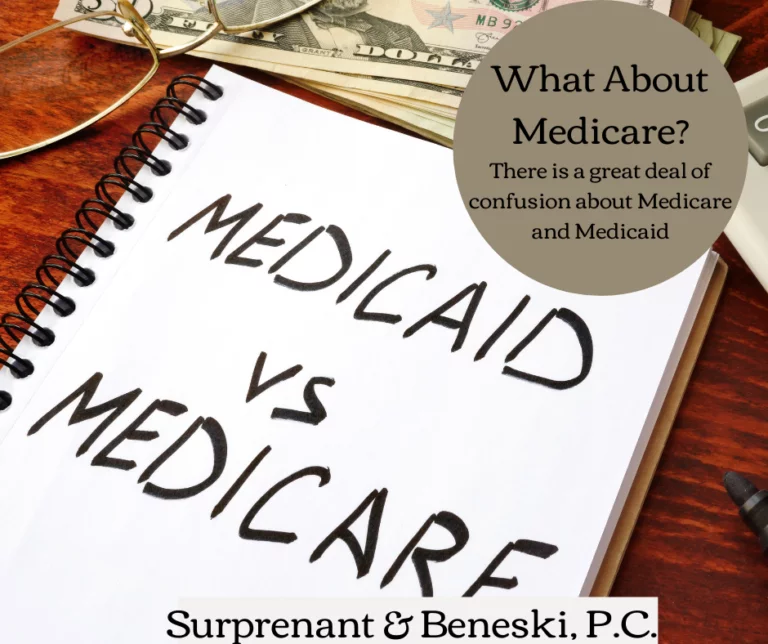There is a great deal of confusion about Medicare and Medicaid
Medicare is the federally funded and administered health insurance program primarily designed for individuals age 65 or older. There are limited long-term care benefits that are available under Medicare. In general, if you are enrolled in a traditional Medicare plan, and you’ve been admitted to a hospital for a stay of at least three nights, and then you are admitted into a skilled nursing facility (often for rehabilitation or skilled nursing care) within 30 days of that hospitalization, Medicare may pay for your care for a while. If you are a Medicare Managed Care Plan beneficiary, a three-day hospital stay may not be required to qualify. If you qualify, traditional Medicare may pay the full cost of the nursing home stay for the first 20 days and can continue to pay the cost of the nursing home stay for the next 80 days, but with a deductible that’s $170.50 per day. Some Medicare supplemental insurance policies will pay the cost of that deductible. For Medicare Managed Care Plan enrollees, there is no deductible for days 21 through 100, as long as the strict qualifying rules continue to be met. So, in the best-case scenario, the traditional Medicare or the Medicare Managed Care Plan may pay up to 100 days for each “spell of illness.” In order to qualify for Medicare to pay for the care the nursing home resident must be receiving daily “skilled care” which is needed to maintain the patient’s current condition or prevent or slow further deterioration, regardless of whether the patient’s condition is expected to improve. Once the Medicare and Managed Care beneficiary has been home and not in a hospital or nursing home for 60 consecutive days, the recipient may restart the 100 days of daily “skilled care” in the nursing home.
While it’s never possible to predict at the outset how long Medicare will cover rehabilitation, from our experience, it usually falls far short of the 100 day maximum. Even if Medicare does cover the 100 day period, what then? What happens after the 100 days of coverage have been used?
At that point, you’re back to one of the other alternatives…long-term care insurance, paying the bills yourself or qualifying for Medicaid.
What is Medicaid?
Medicaid is a benefits program which is funded by the federal and state government and is administered by the state. Some rules may vary from state to state.
One primary benefit of Medicaid is that, unlike Medicare (which only pays for skilled nursing), the Medicaid program will pay for long-term care.
Why Plan for Medicaid?
As life expectancies and long-term care costs continue to rise, the challenge becomes how to pay for these services. Many people cannot afford to pay nearly $12,000 – $14,000 per month or more for the cost of a nursing home. Those who can pay for a while may find their life savings wiped out in a matter of months, rather than years.
Fortunately, the Medicaid Program is there to help. In fact, in our lifetime, Medicaid has become the long-term care insurance of the middle class. But the eligibility to receive Medicaid benefits requires that you pass certain tests regardless the amount of income and assets that you have. The reasons for Medicaid planning are simple. First, you need to provide enough assets for the security of your loved ones — they too may have a similar crisis. Second, the rules are extremely complicated and confusing. Not only that, but Medicaid rules are constantly changing. You need to be correctly informed. Without planning and advice, many people spend more than they should and their family’s security is jeopardized.
©Surprenant & Beneski, P.C. 35 Arnold Street, New Bedford, MA 02740, 336 South Street, Hyannis MA 02601 and 45 Bristol Drive, Easton MA 02375. This article is for illustration purposes only. This handout does not constitute legal advice. There is no attorney/client relationship created with Surprenant & Beneski, P.C. by this article. DO NOT make decisions based upon information in this handout. Every family is unique and legal advice can only be given after an individual consultation with an elder law attorney. Any decisions made without proper legal advice may cause significant legal and financial problems.
